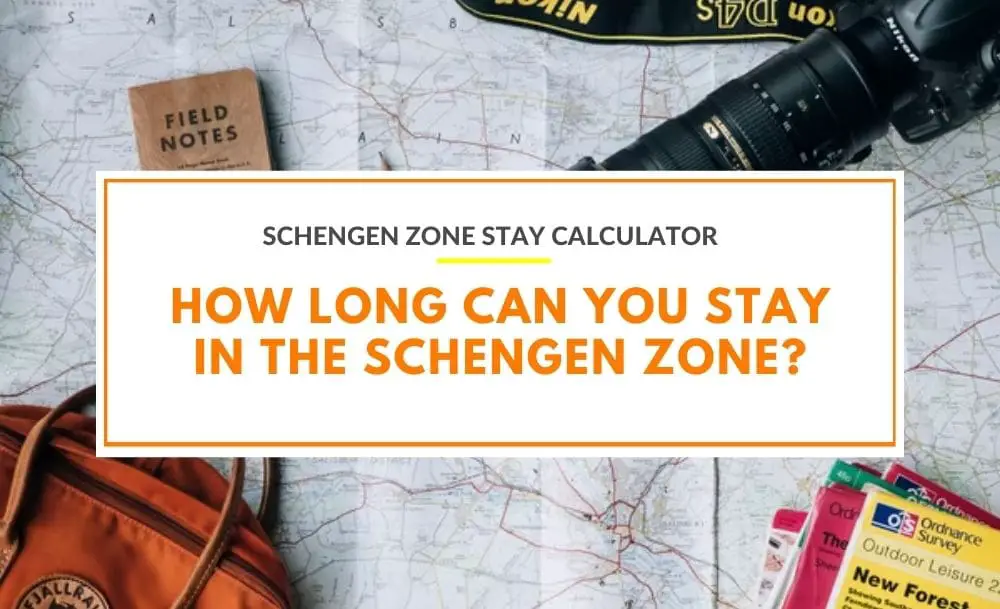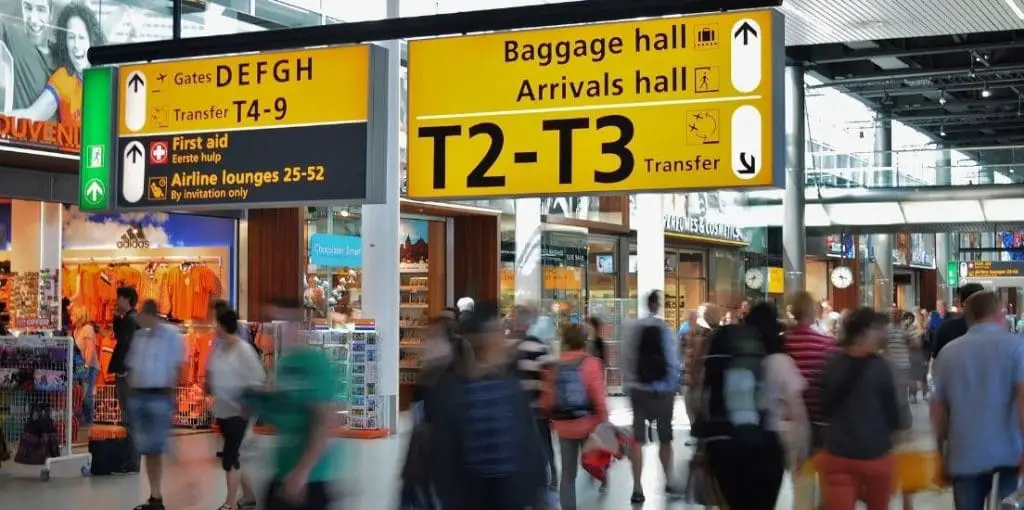90/180 Day Rule Schengen Calculator: Free Schengen Zone Stay Calculator

Schengen Calculator for the 90/180 Days Rule – Calculate Your Legal Short-Stay Days in Schengen Area With This Visa Calculator
Contents In this Article
- Schengen's 90/180 Days Rule
- Overstaying in the Schengen Zone
- Enforcing the 90/180 Days Rule
- 90/180 Days Calculator Tool
- Frequently Asked Questions
Many travellers who wish to sun themselves on the white sand beaches in Mallorca, spend an afternoon amongst the priceless works of art in the Louvre in Paris, or take a stroll around the famed historical monuments in Rome would need to apply for a Schengen visa in order to visit any of these countries.
The Schengen visa is a travel document that allows travellers to visit countries in the Schengen Area for purposes such as tourism, business, visiting family and friends, and others. Depending on the type of Schengen visa, it can be valid for a single entry, double-entry, or multiple entries, which would allow its holder to travel in and out amongst the 26 member countries.
However, the Schengen member countries have also established a visa-free regime allowing nationals of certain countries to visit the area visa-free. If you are one of the lucky people who don't need a Schengen visa to visit any of the European Schengen countries, you can simply pack a bag and plan your trip to enjoy your much-deserved vacation time to Europe for up to 90 in 180 days.
It's important to note that because of the Brexit referendum, the rules on visiting the Schengen Area have changed for UK citizens, who now also have to take note of the time they spend in the Schengen Area.
If you are travelling in and out of the Schengen Area, it can be a challenge to accurately count how many days you have spent in the territory to avoid overstaying and face the penalties that come with this, which could include being banned from travelling to the Schengen countries. But, IaM has developed this Schengen Visa Stay Calculator to help you do just that! Keep reading to know more about the 90/180 days rule or scroll down to find our handy tool!
Related articles:
- How to Read Your Schengen Visa Sticker and Get the Best Use of It
- ETIAS – European Travel Information and Authorization System
- How to Apply for a Schengen Visa in the UK and Elsewhere

Schengen's 90/180 Days Rule
So, what is the 90/180 day rule?
The 90/180 day rule means that visa-free travel to the Schengen area for short-term visits as well as travel under a multiple-entry visa valid for at least six months and with 90 days of duration of stay should not spend more than 90 days within 180 days in the Schengen territory.
The count begins as soon as a traveller enters the Schengen Area and ends on the day they depart, and does not reset.
Many travellers can get confused by this rule, which leads to a wrong calculation of how long they have stayed in Europe, and how long they are permitted to remain and unintentionally overstaying, which can lead to problems in the future.
Because of this, IaM has created this Schengen Visa Calculator, which does the calculations for you. Just enter the simple information asked, as the entry and exit date of your visits to the Schengen Area, in chronological order.
Overstaying in the Schengen Zone
If you happen to overstay in the Schengen zone, the consequences you may face will vary greatly depending on several factors, like the number of days you have overstayed and the country you get caught overstaying in. Some countries like Germany, the Netherlands, Poland, Switzerland, and Scandinavian countries are strict about entry and exit, while Greece is known for applying very high fines to those caught overstaying in the Schengen zone.
Generally, you can face penalties like a fine, deportation, being banned from travelling to the Schengen area for a period of time, and difficulties in your future applications.
There are some circumstances where you may not face consequences for overstaying, such as if you needed to stay for humanitarian reasons or reasons out of your control. Though, as much as possible, it is recommended to extend your visa rather than overstay.
Read more about the consequences of overstaying as well as how to extend your Schengen visa in our blog post: Overstaying in the Schengen Zone? Here’s How to Extend Your Schengen Visa.

Enforcing the 90/180 Days Rule
The 90/180 rule is enforced through the Visa Information System (VIS), the centralised system shared between the Schengen countries to share traveller and visa information.
Border guards will also stamp your passport upon entering and exiting the area. Another difficulty that travellers can face is in the instance that their passport is missing these entry/exit stamps. For now, it is advised that travellers make sure their passports are stamped when they enter or exit the Schengen Area, or provide proof like boarding passes and tickets to prove they have not overstayed their visit to the territory.
However, starting 2022, the EU is set to introduce the Entry-Exit System (EES) in order to facilitate this process and make sure that visitors have accurate records in the system and as an added security measure for travel into the Schengen Area.
90/180 Days Calculator Tool
In order to calculate your stay in the Schengen Area, for the 90 180 day rule, you need to start counting from the day you arrive in the Schengen Area and stop counting from the day that you leave. Based on IaM's years of expertise in the field, we have developed this tool to help you count how many days you have spent in the Schengen Area, and how long you have left to stay.
The 90/180 day rule is a rolling period, which starts from the first time you enter the Schengen Area. This period does not reset.
If you frequently visit these Schengen countries, avoid the nightmare of checking whether you have violated the EU requirement for a maximum of 90 days in the last 180 days.
EU Travel Calculator for British Citizens
Since Brexit has been completed, British passport holders travelling to the EU, Iceland, Norway and Switzerland are now subject to EU rules of entry and stay for third-country citizens.
This means that all non-EU citizens and residents, including British citizens, can only stay in the Schengen territory for a maximum of 90 days in any 180 days period.
For many Britons, the rule has turned out to be quite confusing and, with the loss of free movement across the EU, there’s a high chance of overstaying your welcome.
IaM's Schengen zone calculator for British citizens calculates and shows the remaining number of days that a British traveller can stay in the Schengen zone. You only need to input information like your date of entry and departure of a British traveller’s visits to the Schengen Area. You can use Schengen Visa Calculator in all countries where the “90/180 days” rule exists.
How to Use the Schengen Zone Calculator Tool
The Schengen visa calculator will show to you the remaining number of days that you can stay in the Schengen zone.
Please, enter your stays in the Schengen area below, in chronological order to find out how long you have left to stay in the Schengen area.
This Schengen visa calculator helps you plan and control your travels without overstaying your visa.
Summary

Disclaimer: Though IaM has taken the utmost care to make sure these results are accurate, the results are not guaranteed 100%. You can book a consultation with one of our expert advisers to help you make sure that you are not overstaying or to help you verify your days in the Schengen Area.

Frequently Asked Questions
Which countries in Europe apply this rule?
The following countries in the continent of Europe apply this rule:
- the EU Member States which are part of the Schengen area: Austria, Belgium, the Czech Republic, Denmark, Estonia Finland, France, Germany, Greece, Hungary, Italy, Latvia, Lithuania, Luxemburg, Malta, the Netherlands, Poland, Portugal, Slovakia, Slovenia, Spain and Sweden.
- the EU Member States which do not yet fully apply the Schengen acquis (those who are not yet part of the Schengen area without internal borders): Bulgaria, Croatia, Cyprus and Romania.
How do I know if I need a Schengen visa?
You can find out by reading our article to know who needs to apply for a Schengen visa in order to travel to Europe.
Can you help me get a Schengen visa?
Yes! We can help with your Schengen visa application for a hassle-free trip to Europe.
How long does a Schengen visa take to process?
You can apply for a Schengen visa up to 180 days before your planned trip. The visa application process takes a minimum of 5 working days but can take up to 2 weeks. We advise you to make your application 3 weeks before your trip to make up for any possible delays in processing. If you need to get your application quickly, you can opt for a premium Schengen visa application to get yours as quickly as 1-2 days.
Can UK citizens travel visa-free to Europe after Brexit?
UK citizens can travel to Europe visa-free to the Schengen area for short trips for the purposes of tourism, to visit family and friends, and for business purposes for 90 days. Check if you are overstaying your 90 days by using our tool above!
How do I calculate how long I have stayed in the Schengen Area?
You need to start counting from the first day you arrive in the Schengen Area and stop counting from the day that you leave. The period does not reset so your first day of entry is day 1, and will continue for 180 days. Use our tool above to check how long you have stayed!
What other countries can I travel to on a Schengen visa?
You can travel to any of the 26 countries in the Schengen Area and 18 other countries.
Does Ireland apply the 90/180 days of stay rule for British nationals and other third country nationals?
No, Ireland does not participate in the Schengen Agreement and has no intentions of joining it.
I have a residence permit issued by one of the other EU Member States. Does the 90/180 days of stay rule apply to me?
Even if you have a residence permit, the 90/180 days of stay rule still applies to you. To move from one EU country to another for periods longer than 90 days, you will need a long-stay visa or a residence permit issued by your new destination country. Moreover, if your wish to work, study or join your family in the second country, you may have to meet more conditions.
I own a second home in the EU. Am I subject to this rule?
If you are not registered as a resident in the EU country in which you have a second home, then you are subject to this rule also.
Who is exempt from this rule?
Only EU nationals are exempt from this rule.
What if I want to stay longer in these countries?
You should check the immigration rules of the EU country where you wish to stay longer and then apply for the proper visa or residence permit according to your purpose of stay with the relevant authorities of that country.
Can I stay 90 days in one EU country and then 90 in another?
No, the amount of 90 days applies to all Schengen countries in total, and not 90 days in a specific country.
Does the time I spent in the Schengen area on a valid visa count towards the 90/180 limit?
No, if you have visited the Schengen area on a valid visa, it does not the allowed 90/180 days visa-free stay.
I visited a Schengen country but my passport was not stamped. Will this be a problem for me?
It is possible that the border guards might suspect you overstayed in the area if your passport is missing the relevant entry and exit stamps. You should make sure your passport is stamped when entering or exiting the Schengen zone. Failing this, you can provide proof such as boarding passes and tickets to prove you have not overstayed and ask the border guard to note this information on your passport for the future.
Did this tool help you? Is there anything else you need clarification on? Talk to us in the comment section below.
Check out the deals we have found below and tell us your travel plans.
Check out the offers and discounts from:
And because of the pandemic, don’t forget to get your travel insurance, which will cover you for flight disruptions and pandemic related matters.
IaM can help with your visa application to the United States, the UK & other countries
If you need help with a US visa, a UK Visa, or visa to Europe, including help with appointment booking obligations, IaM can help. For more information and advice on US immigration, UK immigration law and US visa applications or if you need any help or assistance please, reach out to your Visa Coordinator at IaM.
Some of our posts include affiliate links. If you choose to purchase any of these products, we might get a small commission. For more information, check out our TOS.









